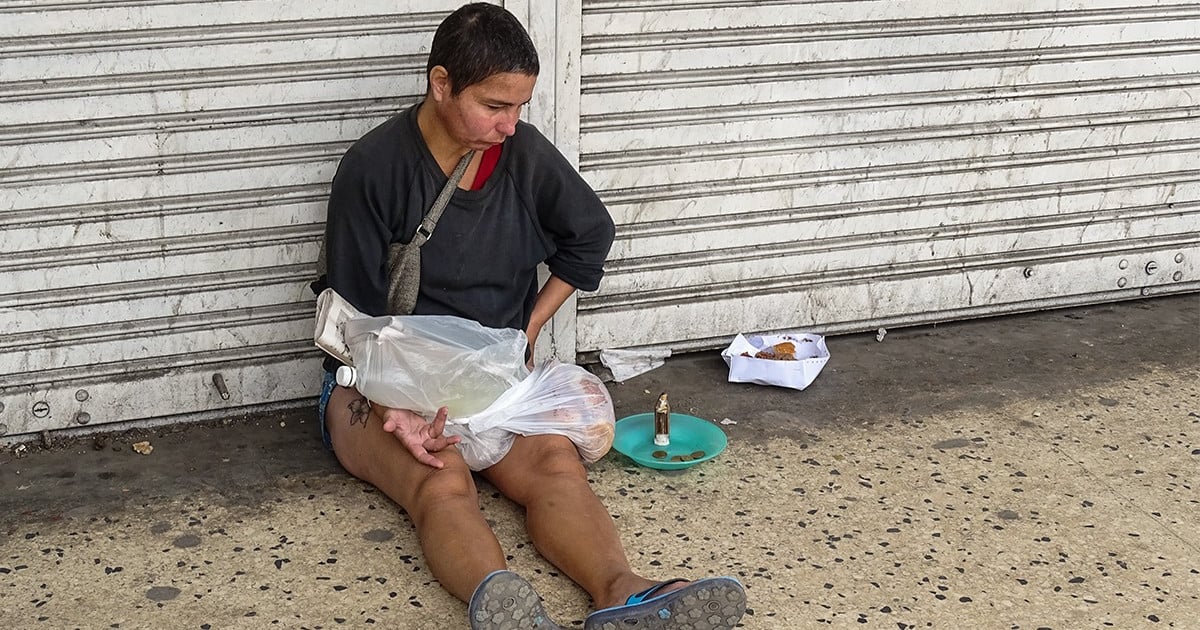"Begging is incompatible with the Cuban social project," declares Granma in its latest attempt to gloss over the dire poverty the regime has sown for over sixty years. In a blatant display of cynicism, the government seeks to shift the blame for extreme poverty onto Cuban families, demanding that uncles, nephews, siblings, and any available relatives be responsible for the beggars the system itself has created.
According to the Family Code, Cubans are legally obligated to ensure the livelihood, shelter, health, and even recreation of their needy family members. Essentially, if your uncle ends up homeless because his state salary is insufficient to buy even a carton of eggs, the fault lies with you for not supporting him, not with the regime for condemning him to poverty.
This represents an implicit acknowledgment of the Cuban state's complete failure. For decades, they have boasted of supposed "social justice" that exists only in the speeches from the Plaza de la Revolución. The reality, however, is quite different: ordinary Cubans must rely on the charity of relatives abroad to survive. In Cuba, all who receive remittances are essentially forced into begging, dependent on the generosity, handouts, and help from friends and relatives who escaped the socialist nightmare.
Meanwhile, the Cuban government is the biggest beggar of all. It continually seeks loans it never repays, demands donations from the UN and the European Union, and exploits its doctors abroad to scrape together hard currency. When funds run dry, the government doesn't seek solutions or reform the economy; instead, it tightens the screws on the populace with new regulations and price hikes in state monopolies.
If there are beggars in Cuba, it's because the regime has destroyed the people's ability to thrive independently. If people scavenge through garbage, it's because the government has rendered the nation unviable. And if families must support one another, it's because the state is good for nothing but repression and plunder.
They cannot now speak of "family solidarity" after decades of persecution, division, and impoverishment. If they want to identify the true culprits of begging in Cuba, they shouldn't look at uncles and nephews. They should look at the Palace of the Revolution and the military leaders of GAESA, the only ones who have never had to beg or depend on anyone.
Understanding Poverty and Responsibility in Cuba
What is the Cuban Family Code's stance on family responsibility?
The Cuban Family Code legally obligates individuals to ensure the welfare of their needy relatives, which includes providing for their livelihood, shelter, health, and even recreation.
How does the Cuban government contribute to poverty?
The Cuban government has been accused of destroying citizens' ability to prosper independently, leading to widespread poverty and reliance on remittances from family members abroad.
Who are identified as the main culprits of begging in Cuba?
The article suggests that the real culprits of begging in Cuba are the leaders at the Palace of the Revolution and the military officials of GAESA, not the family members of beggars.
